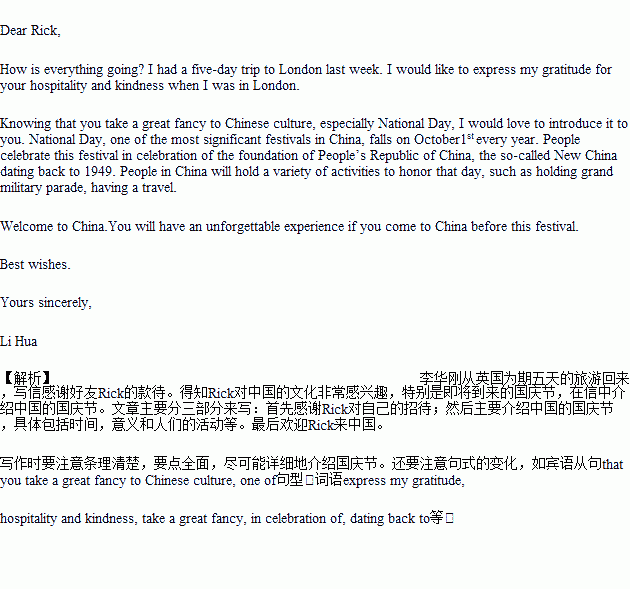题目内容
假定你是李华。你刚从英国为期五天的旅游回来,感谢好友Rick的款待。得知他对中国的文化非常的感兴趣,特别是即将到来的国庆节,请你写一封信介绍中国的国庆节。内容要点:
1、感谢他的招待。
2、介绍中国的国庆节(时间,意义等)
3、欢迎他来中国。
注意:
1、词数100左右;
2、可以适当增加细节,以使行文连贯;
___________________________________________________________________________________________
___________________________________________________________________________________________
___________________________________________________________________________________________
___________________________________________________________________________________________
___________________________________________________________________________________________
___________________________________________________________________________________________
___________________________________________________________________________________________
___________________________________________________________________________________________
_________________________________________________________________

